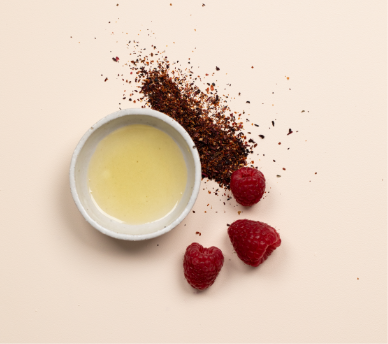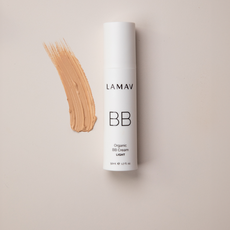There’s no denying it: a healthy, happy gut is one of the fundamental pillars of our general wellbeing. Linked to everything from glowing skin and sleep quality to the health of our brains, our gut has the power to profoundly influence the way we feel—from the moment we wake up to the moment our head hits the pillow.
But what defines a healthy gut? And what can we do to achieve it? A resilient and robust digestive system is determined by the diversity of microbes residing within it. In other words, your gut is defined by the company it keeps! A diverse community of gut bacteria has been linked to better overall health outcomes, while lower levels of diversity are considered an indication of imbalance within the gut.
Otherwise known as ‘dysbiosis', gut imbalance is primarily caused by poor dietary patterns, antibiotic use and psychological stress and is associated with many of the chronic health conditions we see in Westernised countries, including obesity and type 2 diabetes.
But, thankfully, it’s not all bad news. In fact, by making a few small lifestyle tweaks and dietary changes, you can make serious gut health gains in a matter of days.
Favour fermented foods
Fermented foods like kimchi and sauerkraut contain a host of ‘friendly’ probiotic bacteria which can positively impact the composition of microbes living in your gut. Packed with belly-boosting power, these tangy, nutrient-packed condiments can be added to salads and sandwiches or eaten straight from the jar. If you’re buying store-bought kimchi or sauerkraut, be sure to head to the refrigerated section of the supermarket as probiotic bacteria are heat-sensitive and need to be kept cool in order to thrive.
Don’t skimp on sleep
What’s sleep got to do with the state of your gut? Quite a lot, as it turns out! While the mechanism itself remains unclear, science shows that our gut microbiome may actually play a role in regulating our sleep through what's known as the 'gut-brain axis’. Functioning like an information highway, the gut-brain axis passes information from your belly to your brain—and vice versa. As a result of this intimate link, ongoing bouts of poor sleep can have a negative impact on the diversity of bugs living in your gut. To combat this, aim for 7–8 hours of quality sleep every night and avoid screens and technology in the hour before you head to bed. Wind down with some facial massage or dry body brushing instead, burn some relaxing essential oils and do everything in your power to create a snooze-inducing environment by keeping your bedroom cool, calm and quiet.
Embrace the power of plants
It may not be the sexiest of superfoods, but fibre is key when it comes to improving the health of your gut! Found in fruits, vegetables and grains, dietary fibre is a type of carbohydrate that passes through the gut undigested, bringing with it a host of health-related benefits.
Prebiotics are a specific type of fibre that feed the friendly microbes in your gut, giving them the fuel they need to thrive. When your gut microbes feast on prebiotic plant fibres, short-chain fatty acids like butyrate and acetate are produced. While research is still in its early stages, studies show that these compounds boast powerful anti-inflammatory properties that support your metabolic health.
Naturally found in plant-foods like garlic, leek, chickpeas, lentils and barley, prebiotics have also been shown to improve microbial diversity, making them as essential to our health as probiotics, their well-known counterpart. This is why you’ll also find prebiotic inulin in our Ayurvedic Beauty Powder! By skimping on plant-foods, however, there’s a good chance you’re failing to feed your microbes the abundance of fibrous fruits and veggies they love. To combat this, aim for a minimum of five servings of vegetables and two servings of fruit per day.
Looking to go one step further? A 2018 study with over 10,000 participants found that people who eat around 30 different types of plant foods per week have a more diverse gut microbiome than those who consume 10 or fewer plants per week.
Power up with probiotics
When it comes to kicking your gut health into gear, it’s important to focus on achievable changes that you can implement into your daily life with ease. As with any health-focused goal, the most effective strategies are the ones you can stick to over the long term! By enjoying a serving of Beauty Restore every day, you can ensure you're nourishing your gut with a powerful dose of probiotic bacteria to support your general wellbeing and bolster your microbiome. Containing a unique blend of eight different strains of probiotic bacteria derived from bio-fermented coconut, this berry-flavoured elixir helps to boost the number (and variety) of health-promoting bugs in your gut, which is essential for overall wellbeing. What’s more, unlike probiotic pills, Beauty Restore also contains our exclusive Ayurvedic Beauty Blend™—a powerful combination of Ayurvedic plant foods like ashwagandha, holy basil, amla berry and turmeric to support your body’s natural response to stress and fight the visible signs of ageing. If you support your daily inner beauty ritual with a fibre-rich diet, you’ll not only increase the amount of friendly microbes living in your gut, but also give them the fuel they need to flourish.
Don’t forgo your H20
While the foods we eat have the most profound impact on the health of our gut, we can’t forget the importance of the humble glass of H20. Regularly sipping on water throughout the day helps to lubricate the lining of the intestines and prevent constipation. However, according to Ayurvedic tradition, iced water and cold beverages can actually slow your digestive fire (otherwise known as ‘agni’). Opting for warm water, especially upon waking, is a wonderful way to rehydrate your bowels and support digestion throughout the day. If you struggle with bloating or discomfort after meals, consider adding fennel seeds or ginger to soothe your digestive tract.
Move your body
Exercise has been shown to positively impact the composition of microbes in your gut, leading to an increase in inflammation-fighting bacteria. But how much is enough? A 2017 study found that women who take part in three hours of light exercise per week can expect to see an increase in the levels of beneficial bacteria living in their microbiome, when compared with a sedentary population. Whether it’s a daily walk or an ocean swim, simply moving your body will do a world of good for your gut! Find a type of movement that you enjoy—be it Pilates, bushwalking or Bikram yoga—and aim for 3–5 few sessions per week.
Explore our new Inner Beauty range here.










